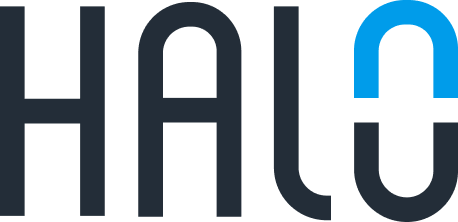Case Study: Reckitt
Building a global network of experts for a fraction of the time and cost
Increasing speed and reach in external partnering
Reckitt Benckiser, a UK-based Fortune 500 company with over $15 billion in annual revenue, has been an innovator in hygiene, health and nutrition for over a century.
The CPG conglomerate produces recognizable brands like Air-wick, Lysol and Mucinex, and the company’s products are found in homes and communities in over 180 countries across the globe.
Reckitt’s contribution to a cleaner, healthier world was emphasized in 2020 during the Coronavirus pandemic. Reckitt saw a 50% increase in sales in the first quarter of that year for their Lysol brand.
To continue Reckitt’s product innovation and revenue growth, R&D leaders sought solutions in three areas relating to personal hygiene and household cleaning (photocatalysis, quat replacement and fabric treatment). This research was paramount amid increased regulatory pressures, particularly from the EU, on quaternary ammonium (a widely used disinfectant).
Andrew Erlick, Manager of Innovation and Technology for Lysol & Harpic (two prominent Reckitt-owned brands), saw first-hand the challenges of identifying external partners.
Previous partnering efforts sourced entirely by Reckitt were time-consuming and cumbersome to manage. Reckitt’s website portal was open to the public, which could result in submissions in a variety of formats and from unverified sources. Further, communication with scientists was difficult to track, and there wasn’t a simple solution for time-effective collaborative review.
That’s when Reckitt turned to Halo.
![]()
Halo has become an integral part of our innovation strategy. In addition to introducing us to new technology solutions, we’ve leveraged Halo to continue to build our network of scientists and startups. This network and their research proposals are now centralized on Halo and accessible to our entire R&D organization

![]()
We’ve leveraged Halo to continue to build our global network of scientists and start-ups focused on some of our most pressing technical challenges. This network and their research proposals are now centralized on Halo and accessible to our entire R&D organization

Efficient and high-quality innovation ecosystem
Increasing Partnering Efficiency
With Halo, Reckitt addressed the financial and time inefficiencies associated with traditional R&D partnering. For many companies, sourcing collaborators requires utilizing tech-scouting services, which can cost an average of $75,000 for a single project or request. These expenses are often layered with other costly services and tools, including marketing, support and software. In Halo, Reckitt found a single partner with the capabilities to source diverse scientific experts, manage communication and proposals, and collaborate with internal colleagues.
Reckitt could devote its resources to what really matters – new research and innovation.
“The platform is great as it creates an opportunity for start-ups and universities to submit their ideas solving the scientific problem but not restricting to fit to brand. Halo definitely increases efficiency in research as it helps to widen our scope of investigations and opens possibilities to exchange experience & knowledge,” said Aleksandra Kruszewska, Ph.D., Senior Research and Development Manager.
Creating a Single System of Record
Tracking and reviewing proposals had previously been an arduous task. Reckitt received proposals and inbound messages in inconsistent formats via email, LinkedIn, and other channels. Naturally, the result was that it was difficult to systematically track those connections. As a result, multiple divisions could inadvertently reach out to a single scientist. Halo provided a welcome alternative, as it was created with collaboration in mind. The Innovation Hub software is a central platform for evaluating proposals, cataloging proposals and scientists, and communicating with these partners.
In one case, Reckitt came across an impressive proposal that wasn’t exactly fitted to the particular research opportunity (RFP). With the centralization of these records, Reckitt could easily earmark the contact for a forthcoming project. Reckitt can now solve its highest-priority challenges of today while also nurturing a network to address its future problems.
Building a Network of Qualified Scientists
The best part— since Halo verifies its scientists, Reckitt received proposals consistent in quality.
The previous website submission form was open to the public, which made quality control challenging. In contrast, Halo pre-vets its network of credentialed PhDs and funded start-ups, resulting in higher-caliber proposals.
Momentum and confidence in product development
Reckitt received 135 submissions from 104 institutions in 14 countries. This represented dozens of investigators they hadn’t discovered through any previous means.
Furthermore, the proposals were the start–and not the end–of the relationship with these experts. With an intuitive database of its proposals and researchers, Reckitt can continue to foster these relationships for future high-priority business needs.
